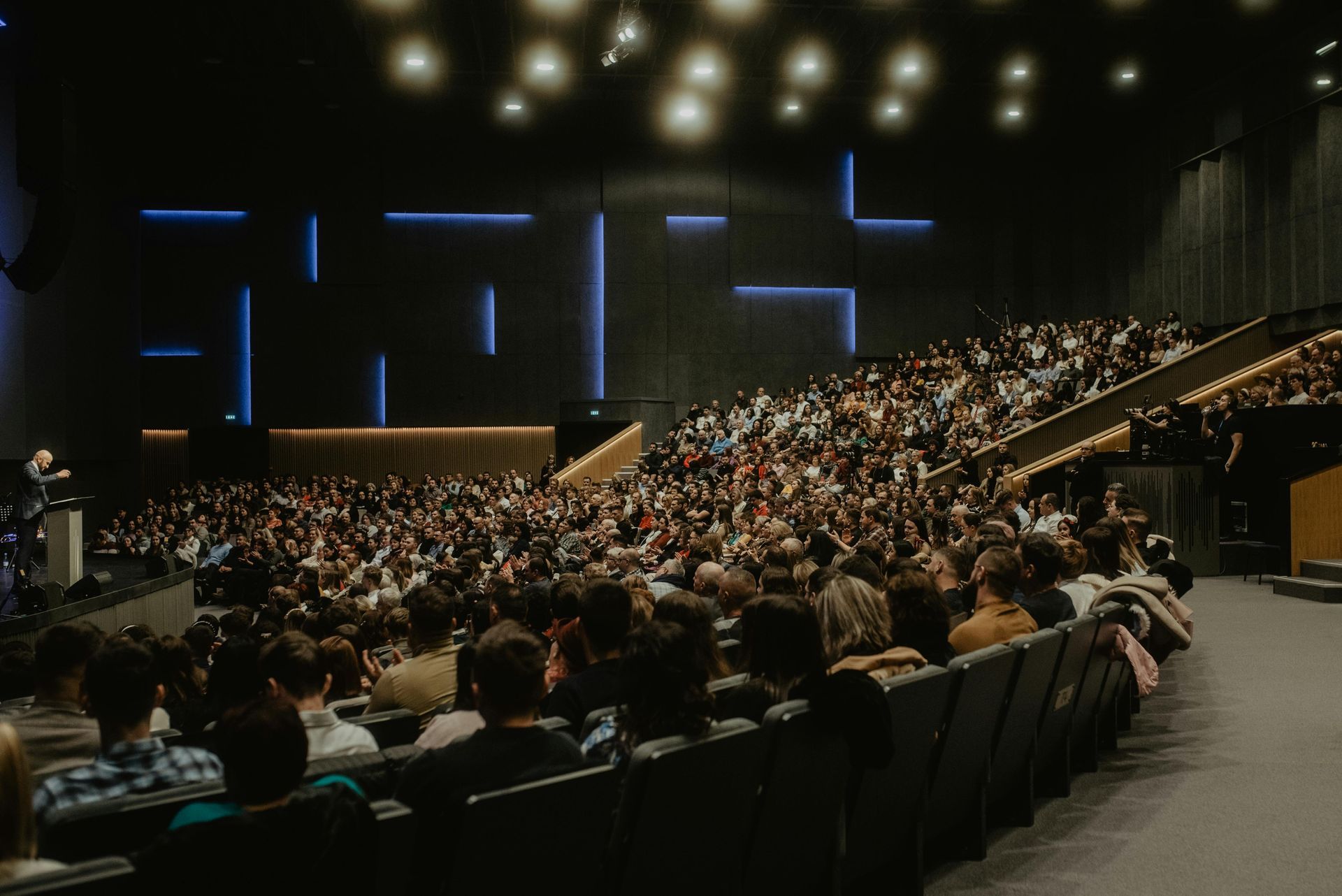Should we buy local in an attempt to boost the economy?
Does buying local really help the economy?
Particularly at this time of year, we are asked to “buy local”. If we could just spend some of our money in small shops and businesses, we would be doing our part to help the local economy bounce back, especially if we buy local. Yes, it does feel nice to look the local shopkeeper in the eye and think, I am contributing to through their bottom line and it will help their household. But isn’t it a drop in the bucket? How can a purchase here and a purchase there achieve critical mass? What’s the real impact of consumer spending, beyond the “feel-good factor” ?
Let’s see if the “buy local” advocates have a point, and examine the issue through two economic concepts: the “marginal propensity to consumer” and the “velocity of money”.
When you buy local, you are buying from
businesses who are more likely to spend
The “marginal propensity to consume”, or MPC , describes how likely you are to spend more, if you get more money. It is expressed as a percentage of a benchmark 100 units of extra money: if I receive an extra €100 and spend €90, my MPC is 0.9 or 90%.
A very well-off person might have a much higher baseline spending than somebody who is not as rich. The well-off consumer is already buying everything they want and need, because they can afford to. As a result, if they happen to receive unexpected money, they are less likely to spend it: after all, they already have most of what they desire anyway.
They can already avail of much of what society has to offer people with a lot of disposable income; they already can eat at the best restaurants, they can already go on expensive holidays and already stay at luxury hotels. As a result the money will potentially be invested or saved, and not spent.
What we are interested in here is the marginal propensity to consume: that is, how likely you are to spend extra money on top of your usual spending patterns. For a rich person, that marginal propensity to consume is low: they won’t spend much above their own baseline, because that baseline is already quite high.
The less well-off person, on the other hand, is more likely to immediately spend the money on all those things they need and want but couldn’t afford previously. In Ireland the Christmas bonus distributed to people on social welfare was cut during the recession but 75% of normal weekly payment is going to be paid this year. If you were on social welfare and you received extra money, what would you do with it? Most probably, you would spend all of it because you’re likely to be doing without lots of things that would enhance your quality of life or the quality of life of your family. For people who are less well-off, their marginal propensity to consume is very high – it might be close to 100%.
Governments can try and influence MPC in different ways: one such strategy was implemented in 2013 by Shinzo Abe in Japan. The idea was to impose a consumption tax, much like VAT: the rationale was that, as people spent, tax revenue would increase and this would fund a 5.5 trillion yen increase in social welfare. The idea was economically sound, but had several unwanted side effects: when you increase the price of goods through additional tax, you create a form of inflation. The logic of the Shinzo Abe policy was that this would trigger a subsequent wage inflation, but it didn’t.
Politically, it’s difficult to take money off the poorer population as it’s deemed socially unjust. It is also problematic from an economic point of view. If you put less money in the pockets of people who are more likely to spend it, it has an intense ripple effect in the local economy, and MPC is one of the reasons why austerity could backfire as a fiscal policy response to a recession.
One of the ways to stimulate a sluggish economy is to encourage people to spend their money. This means more money in the tills of shops; the shops will have to order more products to replenish their stocks, which means companies that produce those objects will be able to fulfill orders, which puts money in their pocket, and so on and so forth.
In such a scenario, it makes perfect sense to give money to those people who are most likely to spend it: those people who have a higher marginal propensity to consume. For example, families with school-age children, small businesses that make relatively little profit, households with large debts could spend every cent of €100 or €1000 or €10000 in seconds!
When you buy local, you spend your money where
it’s most likely to move fast
The second part of the answer has to do with the “velocity” , or speed, of money.
There is a funny story that illustrates this point perfectly: a man walks into a B&B and asks whether they have a room for the night. Indeed they do, the price of that room is €50. The man asks to see it before making up his mind; the B&B owner asks for the €50 as a refundable booking deposit. The man agrees, leaves the €50 on the counter and is off to have a look.
As soon as he is gone, the B&B owner makes a beeline for the butcher across the road. “You sold me €50 worth of meat on credit last week, here is the money.” The butcher thanks him, takes the €50 and races to the grocer a few doors down. “Here’s the money for the fruit and veg supplies I bought a few days ago.” Money in hand, the grocer rushes to the pub: “We had a tab running for the staff party last night – here’s the money”. The publican takes the money to the B&B owner: “My niece stayed with you a fortnight ago – here’s the price of the room”. Upon which the visitor emerges from the room and apologises that he won’t be staying after all. The B&B owner says that’s no problem and gives him back the €50.
It’s the movement of money that sustains an economy, not just the amount itself: that one €50 note moved around and everybody got paid, even though you might say that, at the end of the day, there was no actual money staying in that village. Where is the best place to put your money so that it will have maximum impact on the economy at large? Where it will move the fastest.
Should I buy local? What’s in it for me?
If I can afford it, why would I choose to go to the local butcher, as opposed to a chain? The local shop doesn’t have the same cash balances as the multinational.
Could I get better value and stretch my euro or my pound further if I went to a big supermarket? Perhaps. At the same time, the big chains have millions to invest in consumer research and marketing: it’s very likely that I will leave the supermarket with more than I actually intended to buy, simply because the stores are engineered that way. As a student I worked for a while as a cashier in a supermarket. You wouldn’t believe the number of times I heard customers say “I only came in because we ran out of toilet paper, and now I’m after spending €20… How did that happen?” It happened because of the combined power of a plethora of departments, all working to answer the question “How do we encourage people to spend more?”
So do you have a moral obligation to buy local? As I often say, every economist has two hands.
On the one hand, there’s the plight of the small business that you want to help; but there is also the other hand: larger companies can create huge value in a local area where they employ lots of people and give them career development opportunities. The small business only has their own budget to spend in the local area whereas a multinational could draw down millions from head office in order to build an R&D facility or benefit from a global education fund to send all their staff to a local training facility. They often have the financial strength to spend more at the higher end of the market when it comes to advertising, marketing, client entertainment, team building, recruitment, etc., and there are thousands of companies whose entire livelihoods rest on this dynamic.
So is “buy local” the answer ?
If I personally have a high MPC, and if I can spend that extra money where it will have a high velocity, that is one of the most impactful things I can do at a personal level to help the economy.
I personally prefer to look at where the money moves the fastest. I’ve often driven the car until I could get to a petrol station in a more rural area, even if the petrol is dearer, because I know it will have a lot more impact there.
As I spend a lot of time in urban areas, I try to hold off on buying non-urgent items until I go to smaller towns and villages because they don’t have the same footfall. I made a personal promise to myself to spend my money in Ireland and buy Irish, particularly during the toughest times in the areas that were suffering the most, even though I was travelling and it would have been easier to buy wherever I was.
I buy fruit and vegetables and meat in the smaller shops because I know the direct link between my small basket of food and the food that they are able to put on their own table. It’s not always possible to do this, but I do it as often as I can. It’s interesting to know that the same amount of money that I would spend anyway can have a very different impact on the economy, depending on where I spend it. Keep these two “abstract economic concepts” in mind this Christmas: they can make a very large, concrete difference.







